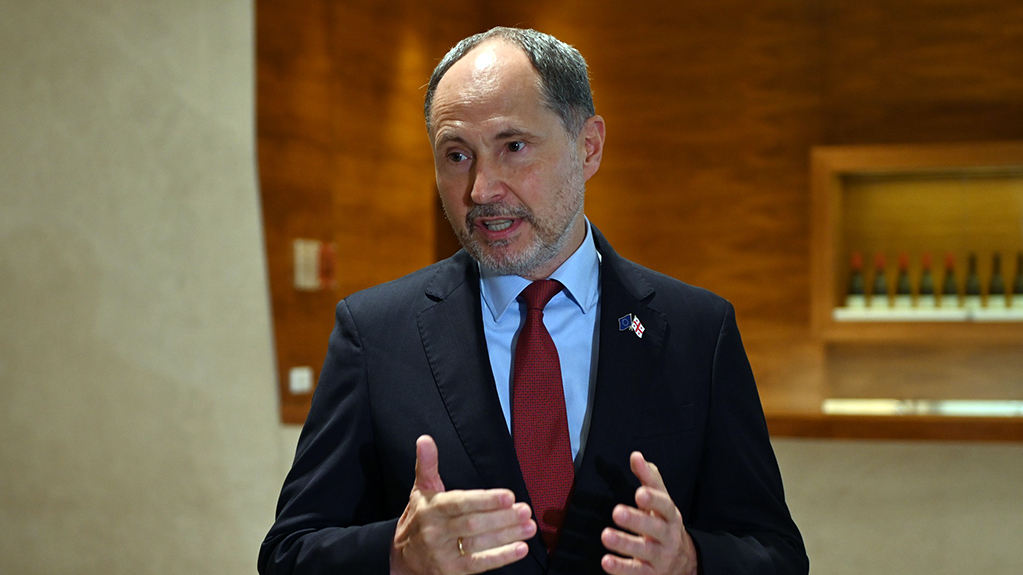"I get the impression that in the last few months, we have had a competition among high-ranking officials in the Georgian government and ruling party over who can most undermine and insult the EU. This is absolutely unacceptable from a country that seeks to join the European Union," said the EU Ambassador to Georgia, Pawel Herczynski.
News
According to the diplomat, the suspension of Georgia's EU accession process is the result of the government's decisions, actions, and statements.
"Georgia is an EU candidate country. But this can happen only under certain conditions, and unfortunately, last year has been wasted. Instead of Georgia getting closer to the European Union, the distance has grown even wider, and this is happening while other countries, who wants to join the European Union, have accelerated necessary reforms.
Back in June of this year, the European Council, the leaders of the 27 member states of the European Union, decided to stop the process of Georgia’s accession to the European Union. This is very painful and regrettable, especially when other countries have seen their accession processes accelerated. The suspension of Georgia's accession was a result of decisions made here in Georgia, So, the problem is not in Brussels, nor in Washington, nor in Kyiv—the problem, and the solution, are in Georgia. It was the decisions, actions, and statements of the Georgian government, parliament, and ruling party that led the 27 member states' leaders to suspend Georgia's EU accession process.
One of the key demands we had a year ago, in the first enlargement report published last November, was to stop the anti-Western and anti-EU propaganda, conspiracy theories, and strange narratives. Unfortunately, this anti-Western and anti-EU disinformation has not stopped over the past year. On the contrary," said Herczynski.
On October 17, at the European Council meeting in Brussels, the EU leaders once again expressed their "serious concern" over the actions of the Georgian government that contradict the values and principles of the European Union. They stated that "such actions threaten Georgia's European path and effectively halt the accession process." At the same time, the European Council reaffirmed the EU's readiness to support the Georgian people on their European path.















